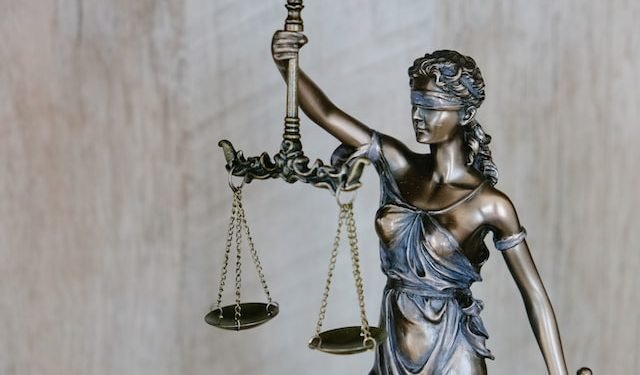As a result of the growing popularity among active users, social media has recently experienced a surge in usage. With more individuals demonstrating their familiarity with and fondness for social media platforms like Facebook, WhatsApp, and others, it was only a matter of time before others followed suit.
With over 2.7 billion monthly active users, Facebook quickly becomes the most popular social media platform. There are many other options for social networking outside the ubiquitous Facebook and WhatsApp. Online communities consist of:
- YouTube
- Blogs
- Vlogs
It’s all about social networking these days. Many people rely on these sites as their primary method of regular contact and socialization. The regulation of these aspects of online communication is also included in social media law. Do you know the difference between Social Media And Social Networking? Social media law is necessary to prevent the virtual society from degenerating into anarchy, just as regulations are implemented in the real world to ensure its survival, growth, and progress.
Legal Implications of Social Media?
The legislation about social media is still developing, but it already includes criminal and civil aspects. This article discusses user-generated Content and the websites that host or provide access to such material. Confidentiality, insult, advertising law, and intellectual property (IP) law are just a few of the law areas complicated by social media. Content uploaded on social media may infringe on copyright, trademark, and other intellectual property rights.
In What Ways Do Lawyers Use Social Media?
The legal protections afforded to social networking sites are sometimes far superior to those afforded to individual users. Social media attorneys may defend internet users who have been accused of criminal or defamatory acts, as well as online companies that have been sued because of the actions of their users.
Intellectual property lawyers can help anyone who worries that their trademarks, logos, or other intellectual assets are being exploited on social media.
You Need to Be Aware of the Laws Regarding Social Media
While the guidelines for using social media are constantly evolving, there are still laws in place that provide a framework. Chen outlined the many rules and regulations frequently relevant to social media.
- Anti-SLAPP laws provide protections against baseless lawsuits brought to restrict speech.
- Discrimination based on a person’s handicap is prohibited under the Americans with Disabilities Act.
- The Communications Decency Act regulates offensive and offensive Content in cyberspace.
- The common law tort of trespassing into another real property is extended into the world of cyberspace via the Computer Fraud and Abuse Act.
- The Digital Millennium Copyright Act lessens the liability of service providers, but the Copyright Act creates exclusionary rights for works of authorship.
- Information collected from children under thirteen is governed by the Children’s Online Privacy Protection Act.
- To paraphrase the law, “any wire, oral, or electronic communication” cannot be intercepted.
- According to the Federal Trade Commission Act, the FTC can look into deceptive business practices.
- Protection for trademarks and service marks is provided under the Lanham Act.
- Workers’ rights to join together to advance better working conditions are protected under the National Labor Relations Act.
- Companies cannot access or store customers’ specific personal information following the Stored Communications Act.
How Do Regulations Governing Social Media Affect Small Businesses?
Building a social media policy is the most critical first step before a legal dispute arises. Business owners must know how the procedures governing workers’ use of social networking platforms influence their operations. This can help mitigate any risk brought on by employees or customers to the company.
- Racially Insensitive Material
A small business must clarify to its staff that its internet activity might benefit or harm the company. Threats of physical violence, incitement to racial or religious hatred, and other types of harassment are probably against the law and business policy.
- Critical Thinking and Actions
Customers can voice their delight or displeasure with a company via online review sites. A business may suffer from negative reviews, but responding to them can be even more damaging and illegal.
There is no way for a company to retaliate against a customer or worker who has posted a critical review online. Furthermore, a business cannot censor customer complaints. It’s essential to clarify the link between the study and the employee’s performance when they leave.
- Content Provided by Outside Parties
Content published on social networking platforms may infringe against their respective owners’ copyright, trademark, and other intellectual property rights. An organization, mindful of copyright and trademark restrictions, should create policies for dealing with material obtained via social media sites by third parties. Data, customer privacy, and financial information should all be protected by policies.
Considerations Concluding
According to the statistics, social media use has rapidly become embedded in our everyday routines. According to data compiled from social media platforms, daily active users spend an average of 142 minutes here. In 2018-2019, 328 million people regularly used social media, as reported by research firm ComScore.
The aptitude to keep interacting with friends and family via social media may be both a boon and a bane. On the other side, more and more individuals are victims of cyber-related problems, including cyberbullying and other forms of online harassment.
Because of this, the government works tirelessly to impose strict regulations and pass new laws that effectively offer legal justice in numerous social media incidents.












